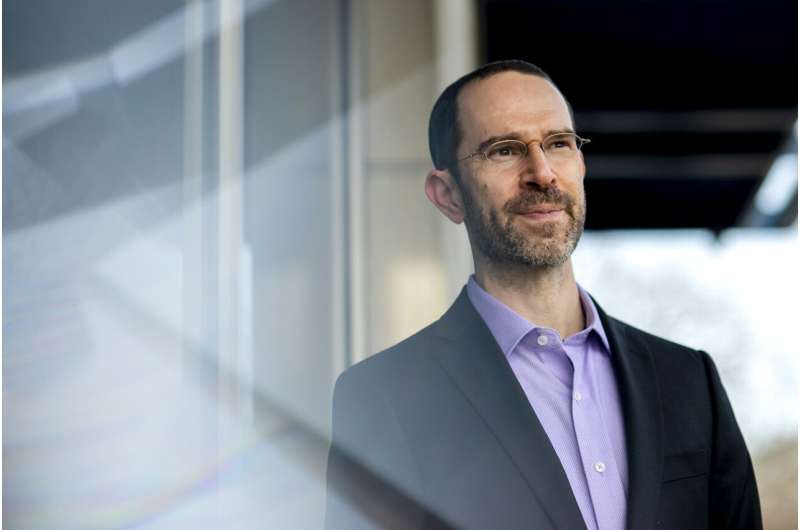The best way to get back to normal after devastating tornados? Just start somewhere

As residents in America's heartland grapple with grief and devastation following Friday's tornado outbreak, shaken survivors may find small steps to recovery come from a return to simple routine, such as a visit to the dog park or a chance to bring the kids ice skating, says Daniel Aldrich, a Northeastern professor who studies post-disaster recovery.
Aldrich concedes that resuming scheduled activities like school and church may seem counterintuitive amidst the swaths of leveled buildings and destroyed neighborhoods. But structure and schedule are key for communities to recover in the long term.
"The rhythms of daily life are an under-appreciated but critical asset that we have after communities experience shock," says Aldrich, who studied resilience and recovery in Louisiana after Hurricane Katrina in 2005 and in the Tohoku region of Japan following 2011's 60-foot tsunami and subsequent nuclear meltdown.
President Biden is expected to visit leveled communities in Fort Campbell, Kentucky, on Wednesday, as well as Mayfield and Dawson Springs in the hard-hit Bluegrass state. At least 88 people across five states have died as a result of the destructive touchdowns, which started in Arkansas and struck Mississippi, Tennessee, Kentucky, Missouri, and Illinois.
In the short term, however, survivors are likely still in shock, says Aaron B. Daniels, a psychology professor who studies mindfulness and spirituality.
"For the next few days, maybe weeks, you need to leave room for all the different reactions," says Daniels. "I think in the face of these disasters it helps to give people something to do. Folding blankets, packing food, setting up cots. Sitting with grief is one thing, and there will be time for that. But initially, something to do, to be a part of the community and feel helpful, as opposed to sitting back and staring at the rubble or thinking about the loss of loved ones."
As the holidays loom, both Daniels and Aldrich say that maintaining contact with other members of the community helps with inner healing.
"The more you isolate, the less others know how you're doing, and the less they're able to help," says Daniels.
Aldrich, who survived Hurricane Katrina when it destroyed his home in New Orleans, says that small gathering spaces that restore a sense of normalcy can help.
"The more quickly we can have a rhythm of a daily school opening up again, jobs for the victims, regular bus service, providing spaces for recreation and all the things that helped make our lives feel regular again, the better," says Aldrich.
Research shows that even the type of temporary housing provided to survivors can play a key role in recovery. Hotel rooms or nearby apartments are better than the trailers often provided by the Federal Emergency Management Authority, Aldrich says.
"Moving from your home to something like the FEMA trailers typically was not the best environment health-wise, both physically and mentally," says Aldrich. "They're cold in the winter and hot in the summer, and families that are bigger than four people really cannot fit in them."
The return to normal will likely be slow, particularly in Kentucky which had the largest number of deaths. Daniels says ensuring that first responders and community leaders have an outlet to process their feelings will help neighborhoods overall, especially after the first rush of aid ebbs.
"I'd focus on the leaders and first responders, because they will be the ones that we hope are able to pivot in their role and help others. So I'd really channel a lot of support there. I'd also reach out to whatever clergy is present and check where they're at. Have they had any training in this? Do they have a background? And if so, let's see how we can mobilize them," he says.
In the end, just being there as a community works to clear the rubble can be key, says Daniels.
"It's about presence. Just being there, listening, and being super careful not to have an agenda."




















